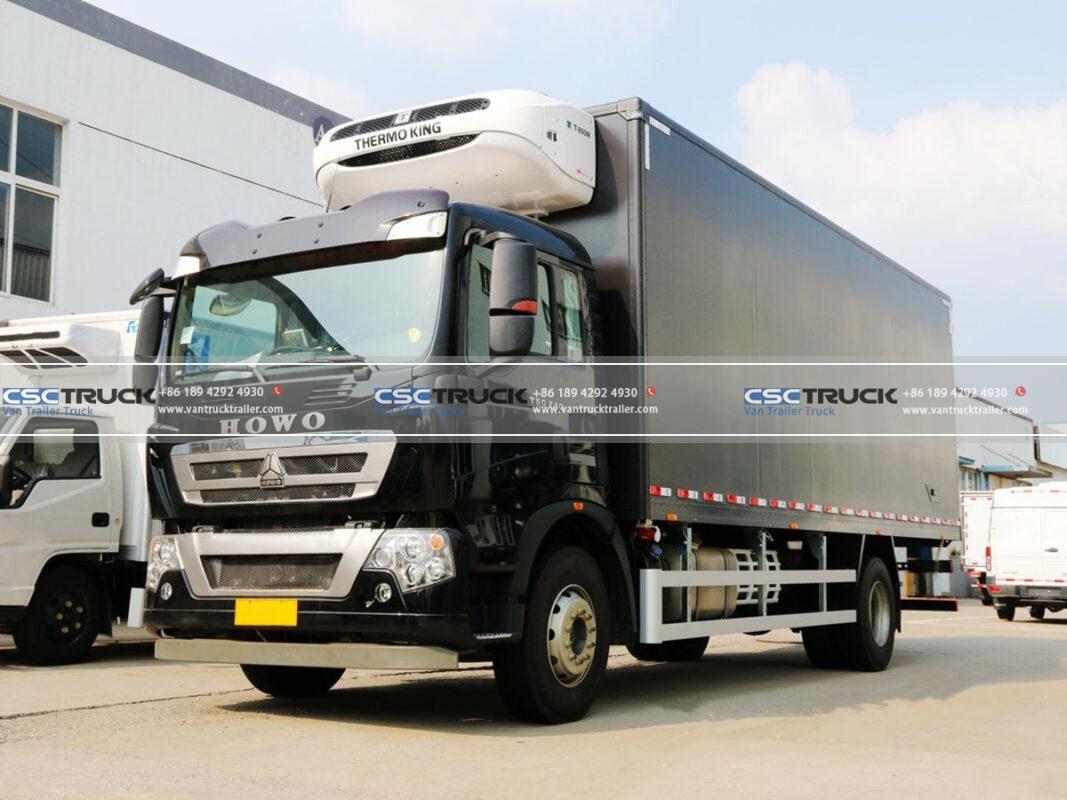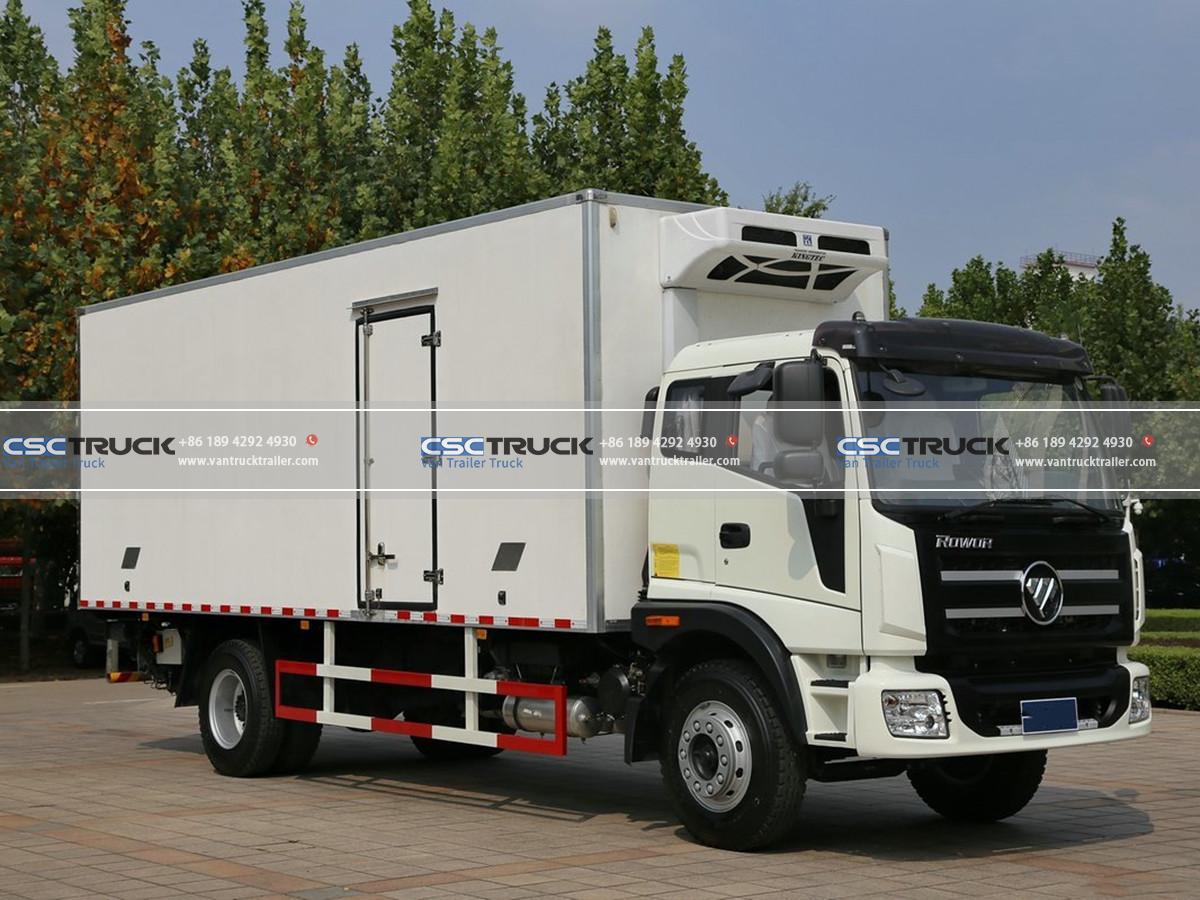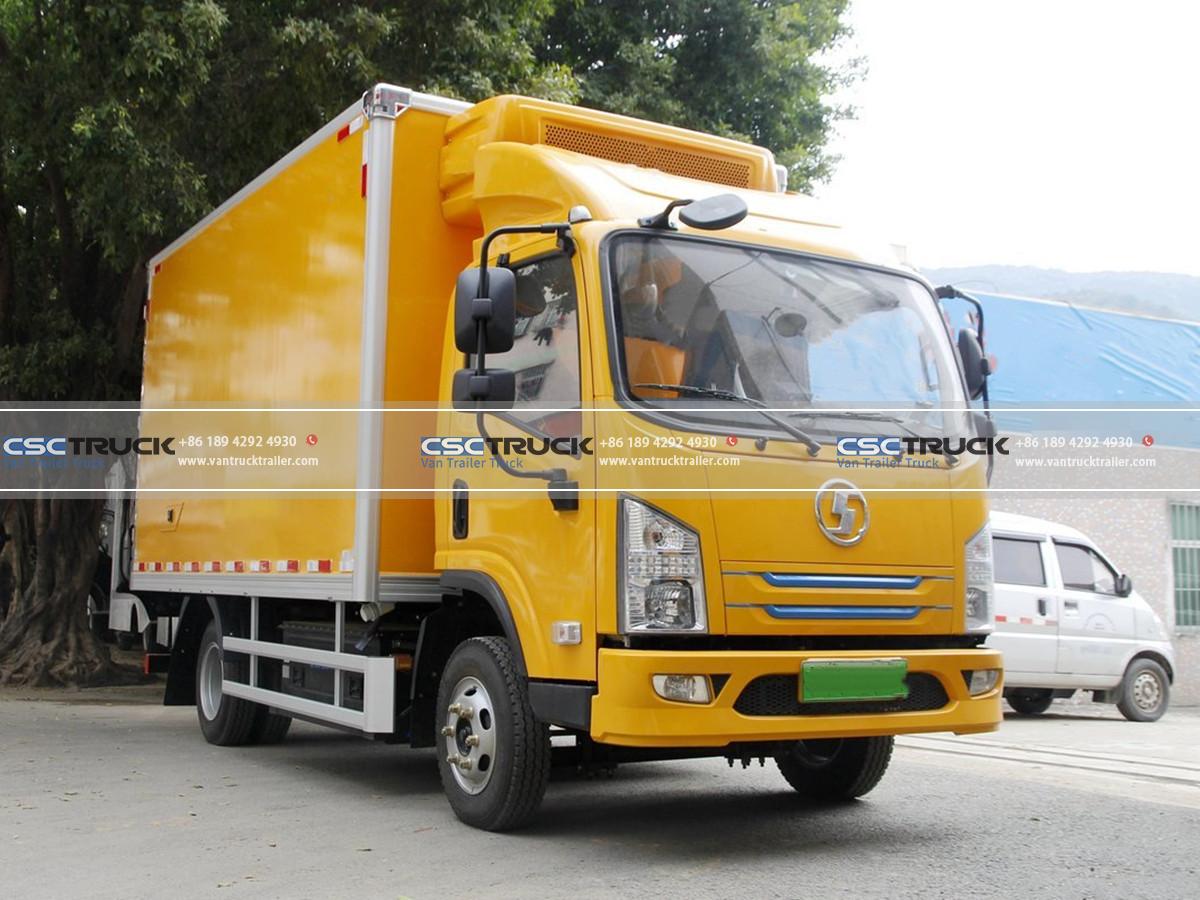In the world of logistics and transportation, refrigerated trucks play a critical role in ensuring the safe and efficient delivery of temperature-sensitive goods. From fresh produce and dairy products to pharmaceuticals and floral arrangements, these specialized vehicles are designed to maintain precise temperature control, protecting the integrity and quality of perishable items. However, not all refrigerated trucks are created equal. To choose the right vehicle for your business, it’s essential to understand the key features that set high-quality refrigerated trucks apart. This blog post explores the most important factors to consider when selecting a refrigerated truck, ensuring that your investment meets your operational needs and delivers optimal performance.
1. Temperature Control and Consistency
The primary purpose of a refrigerated truck is to maintain a consistent and controlled temperature throughout the transportation process. Temperature control is the most critical feature to evaluate, as even minor fluctuations can compromise the quality and safety of perishable goods.
High-quality refrigerated trucks are equipped with advanced cooling systems that allow for precise temperature adjustments. These systems should be capable of maintaining a wide range of temperatures, from freezing conditions for frozen foods to slightly above freezing for fresh produce. Additionally, the cooling system should be able to respond quickly to external temperature changes, ensuring that the internal environment remains stable even in extreme weather conditions.
When comparing refrigerated trucks, it’s also important to consider the insulation quality of the vehicle. Proper insulation helps maintain temperature consistency and reduces the workload on the cooling system, improving energy efficiency and lowering operational costs. Unlike a standard dry van truck, which lacks temperature control, a refrigerated truck is specifically designed to protect perishable goods, making it an essential investment for businesses in the food, pharmaceutical, and floral industries.
2. Capacity and Space Optimization
Another key feature to consider when selecting a refrigerated truck is its capacity. The size and layout of the truck should align with your business’s cargo volume and transportation needs. Whether you’re transporting small batches of high-value pharmaceuticals or large quantities of fresh produce, the truck’s capacity must be sufficient to handle your specific requirements.
High-quality refrigerated trucks offer customizable storage solutions, such as adjustable shelving, partitions, and racks, to optimize space utilization. These features allow you to organize cargo efficiently, reducing the risk of damage during transit and maximizing the truck’s load capacity. Additionally, the interior design should facilitate easy loading and unloading, minimizing downtime and improving operational efficiency.
While a cargo truck may offer ample space for non-perishable goods, a refrigerated truck provides the added benefit of temperature control, making it the ideal choice for businesses that deal with perishable items. By selecting a vehicle with the right capacity and layout, you can ensure that your cargo is transported safely and efficiently, without compromising on quality.
3. Energy Efficiency and Sustainability
As businesses increasingly prioritize sustainability, energy efficiency has become a crucial factor in choosing a refrigerated truck. These vehicles rely on cooling systems that consume significant amounts of energy, so selecting a model with energy-efficient features can help reduce operational costs and minimize environmental impact.
Modern refrigerated trucks are equipped with advanced technologies that enhance energy efficiency, such as variable-speed compressors and eco-friendly refrigerants. These features allow the cooling system to adjust its output based on the cargo’s temperature requirements, reducing energy consumption and extending the lifespan of the equipment. Additionally, some models offer hybrid or electric powertrains, which further lower fuel consumption and emissions, making them a greener choice for businesses committed to sustainability.
When evaluating refrigerated trucks, it’s also important to consider the insulation materials used in the vehicle’s construction. High-quality insulation not only improves temperature consistency but also reduces the energy needed to maintain the desired conditions. By investing in an energy-efficient refrigerated truck, you can achieve significant cost savings while contributing to a more sustainable future.
4. Durability and Maintenance Requirements
The durability of a refrigerated truck is another critical factor to consider, as it directly impacts the vehicle’s longevity and operational reliability. Unlike a standard dry van truck, which has fewer mechanical components, a refrigerated truck includes complex cooling systems that require regular maintenance to ensure optimal performance.
When selecting a refrigerated truck, look for models with robust construction and high-quality materials that can withstand the rigors of daily use. The vehicle’s chassis, walls, and flooring should be designed to handle heavy loads and resist wear and tear, even in challenging environments. Additionally, the cooling system should be built with durable components that require minimal maintenance, reducing downtime and repair costs.
It’s also important to consider the availability of replacement parts and service support for the refrigerated truck. Choosing a model from a reputable manufacturer with a strong service network can help ensure that any issues are resolved quickly, minimizing disruptions to your operations. By prioritizing durability and ease of maintenance, you can maximize the lifespan of your refrigerated truck and achieve a higher return on investment.
5. Advanced Safety and Monitoring Features
Safety is a top priority in the transportation of perishable goods, and a high-quality refrigerated truck should be equipped with advanced safety features to protect both the cargo and the driver. These features not only enhance the security of the vehicle but also provide peace of mind for businesses that transport high-value or sensitive items.
One of the most important safety features to look for is a reliable temperature monitoring system. This system should provide real-time data on the internal temperature, allowing drivers to make adjustments as needed and ensuring that the cargo remains within the desired range. Some models also include alarm systems that alert drivers to any temperature deviations, enabling them to take immediate corrective action.
In addition to temperature monitoring, refrigerated trucks should be equipped with other safety features, such as secure locking systems, reinforced cargo areas, and advanced braking systems. These features help prevent theft, reduce the risk of accidents, and ensure that the vehicle operates safely in all conditions.
Some refrigerated trucks offer additional security measures for businesses that transport pharmaceuticals or other high-value goods, such as GPS tracking and remote monitoring capabilities. These technologies provide real-time visibility into the vehicle’s location and condition, enhancing cargo security and enabling businesses to respond quickly to any issues.
Choosing the right refrigerated truck is a critical decision for businesses that rely on the safe and efficient transport of perishable goods. By prioritizing features such as temperature control, capacity, energy efficiency, durability, and safety, you can select a vehicle that meets your operational needs and delivers optimal performance. Unlike a standard dry van truck or general-purpose cargo truck, a refrigerated truck is specifically designed to protect temperature-sensitive items, making it an essential investment for businesses in industries such as food, pharmaceuticals, and floral logistics. By carefully evaluating these key features, you can ensure that your refrigerated truck provides the reliability, efficiency, and security needed to support your business’s success.



